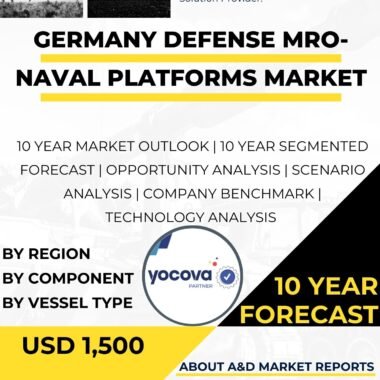Description
Brazil’s Corvettes Market: Maritime Defense Strategy
The Brazil Corvettes Market is a key sector. Clearly, it strengthens the country’s navy and maritime defense. Corvettes are flexible, low-cost navy ships. They fit between large warships and small patrol boats. Consequently, Brazil needs to protect its long coast. It must also guard its sea interests and face security challenges. Therefore, the demand for corvettes has grown.
🌊 Protecting an Extensive Coastline
Brazil has a coastline over 7,400 kilometers long. As a result, it faces many sea threats. These threats include illegal fishing, drug trade, piracy, and border issues. To meet these threats, the Brazilian Navy is upgrading its fleet. It invests in corvettes as a key part of its strategy. Corvettes balance operational power, long range, and low cost. Thus, they are vital assets. The Navy uses them to patrol and defend Brazil’s waters and economic zone.
🚢 Industry Players and Global Partnerships
A mix of local and global firms compete for contracts in the corvettes market. Generally, these companies want to supply the navy with modern ship designs. Key local players in Brazil’s shipbuilding industry include EMGEPRON and AMRJ. Specifically, these shipyards build and maintain corvettes. Moreover, they grow technical skills. This strengthens Brazil’s defense industry.
However, modern corvettes are complex. Therefore, Brazil also works with global shipbuilders. It acquires cutting-edge vessels this way. This approach speeds up technology transfer. It improves local shipbuilding skills. In addition, it helps Brazil build some corvette parts locally. Brazil has worked with firms from France, Germany, and the UK.
🚀 The Tamandaré-Class Program
The Tamandaré-class program is a key market driver. The Navy plans to buy four modern corvettes. Crucially, they will replace the older Inhaúma-class ships. This program marks a major step. It boosts the Navy’s readiness and power. Furthermore, it gives both local and global shipbuilders a chance to compete. Ultimately, this pushes Brazil’s shipbuilding sector forward.
🛠️ Technology and Versatility
Modern corvettes use the latest technology. For instance, they carry advanced sensors, comms, and weapons. These ships often have modern radar and sonar. This helps them see better. It also helps them fight subs. They carry many weapons. These include surface-to-surface and anti-ship missiles. They also use anti-air missiles and torpedoes. As such, corvettes can fight threats on the sea and in the air.
Additionally, corvettes are modular and flexible. This design allows easy setup of different mission gear and payloads. This flexibility lets corvettes handle many tasks. For example, they manage anti-sub and anti-surface combat. They also handle sea patrol and disaster relief. Clearly, their ability to change roles makes corvettes valuable. They can quickly respond to changing security needs.
📈 Future Vision and Challenges
Furthermore, Brazil wants to build its own corvettes. Its local shipbuilding and R&D efforts show this interest. Brazil builds this domestic ability to cut its reliance on foreign sellers. It aims to increase its tech independence. Ultimately, this creates a base for future navy work. This long-term view fits Brazil’s goal: becoming a self-reliant global defense player.
However, challenges remain in the corvettes market. Budget limits and other spending needs slow down how fast Brazil buys and updates corvettes. Moreover, careful planning and smart partnerships are needed. This ensures effective tech transfer. It also helps Brazil gain the skills to build and maintain advanced corvettes locally.
🔑 Conclusion
In conclusion, the Brazil corvettes market is a vital sector. It is essential because it strongly supports the country’s sea defense. Corvettes offer a low-cost, flexible way to patrol and guard Brazil’s long coast and sea interests. Brazil is committed to improving its navy. It shows this by pursuing new programs, working with global builders, and trying to build ships locally. Finally, as Brazil faces new threats and strengthens its navy, the corvettes market will grow. This gives local and foreign firms chances to boost Brazil’s sea security and technology.




